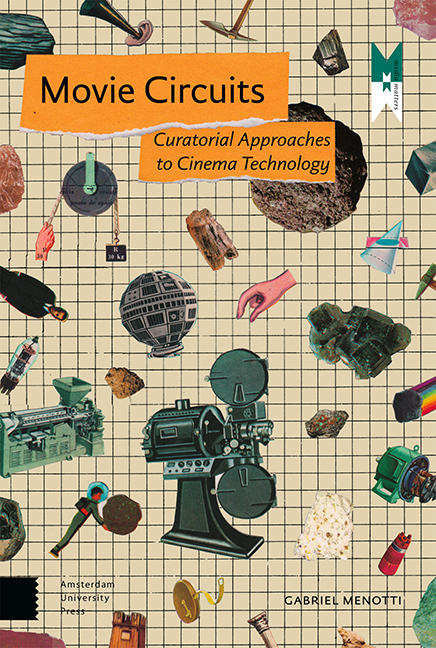2 - The Becoming of Cinema
Published online by Cambridge University Press: 21 November 2020
Summary
Abstract
Drawing from Gilbert Simondon's philosophy of technology, this chapter explores the constitution of cinema as a technical ensemble. It shows how aspects conventionally underpinning cinematographic specificity can be thought of as the epiphenomena of its individuation. These aspects express successive stages in cinema's becoming, culminating in epistemic formations particular to the medium. By the means of these epistemic formations, the circuit is underwritten to a hierarchy of presences, effectively organizing new elements within or without cinema. Following even the most radical technological changes, there is a reorganization of paradigms which advances medial ideology. This reorganization effects a sort of metaphysical closure, which precludes the medium's subject to grasp the becoming of cinema fully.
Keywords: Technical genesis, film history, expanded cinema, medium specificity, scientific paradigms, cinematographic apparatus
In 2015, when the Cinema and Audiovisual Media undergraduate course of the Federal University of Espirito Santo (UFES) first appeared, it had already been running for five years. More than 100 people had enrolled; thousands of classes had been taught; three volumes of its peer-reviewed journal had been published. Each term, new student works were shown in a self-organized screening; some were even making the rounds in film festivals elsewhere in the country. People from the first class were about to graduate, while opening their own production companies and applying for filmmaking grants. It was a relatively successful course, given its short period of existence. However, up to this point, it did not have anything to do with cinema. Officially, at least.
The course had been created bearing only Audiovisual Media in its title. It was a project by some faculty members of UFES's Social Communications Department. As cinephiles, they had envisaged such a course for a long time. The opportunity arrived in 2008 with a programme by the Brazilian Ministry of Education which aimed at the restructuration and expansion of Federal Universities (Programa de Apoio a Planos de Reestruturação e Expansão das Universidades Federais, hereafter REUNI). The support from the government enabled the construction of new studios, the purchase of digital cameras and editing suites, and the hiring of specialized lecturers. Nevertheless, none of this really authorized the creation of a course in cinema, which, for Brazilian academia, is a field of specialty apart from communications, belonging to the domain of visual arts.
- Type
- Chapter
- Information
- Movie CircuitsCuratorial Approaches to Cinema Technology, pp. 65 - 86Publisher: Amsterdam University PressPrint publication year: 2019



